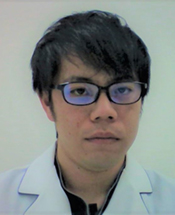A Simulation Study On the Radiation-Induced Immune-Response of Tumor After Radiosurgery Using An Improved Cellular Automata Model
D Kawahara1*, Y Nagata1, Y Watanabe2, (1) Department of Radiation Oncology, Hiroshima University, Hiroshima, Hiroshima, Japan, (2) University of Minnesota, Minneapolis, MN
Presentations
PO-GePV-T-446 (Sunday, 7/10/2022) [Eastern Time (GMT-4)]
ePoster Forums
Purpose: To investigate the immune effects triggered by a single large dose to the local control using an improved cellular automata (CA) model.
Methods: Tumor growth was simulated by considering oxygen and nutrients supplied to the tumor through blood vessels. Cell damage processes were modeled for the direct cell death by the radiation and the indirect death due to the radiation-induced vascular damages. The effectors were generated when cancer cells died due to the direct and indirect apoptotic and indirect necrotic death. A high radiation dose caused vascular damage in the tumor, leading to tumor hypoxia. It eventually increased the expression of hypoxia-inducible factor (HIF-1α). The effector counterattacked the anti-tumor immunity of cancer, whereas HIF-1α reduced the immune effects of the effectors. The tumor volume on the 700-th day after radiosurgery (SRS) was evaluated by varying the probability of the effector deactivation by the HIF-1α, PHIF, the probabilities of effector production due to the indirect apoptotic death, PAE, and indirect necrotic death, PNE, after SRS.
Results: Post-SRS tumor volume decreased with increasing PAE and PNE. The maximum differences of the tumor volume between PAE=0.001 and 0.1 and PNE = 0.01 and 0.1 were 14.1% and 14.5%, respectively. On the other hand, the tumor volume was larger with a higher PHIF. Specifically, the maximum difference of the tumor volume between PHIF=0.0 and 0.9 was 26.4%.
Conclusion: By explicitly modeling the counter-acting effects of effector production and deactivation in a CA simulation, we showed that the increase of the effectors by indirect apoptotic and necrotic death suppresses the tumor proliferation after SRS. Still, at the same time, the hypoxia caused by the SRS-induced vascular damage might negate the positive immune effects. Hence, the immune effects on the local control after SRS strongly depend on the delicate balance of these opposite effects.
Keywords
Taxonomy
Not Applicable / None Entered.
Contact Email



